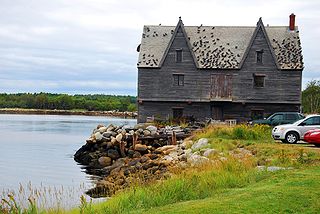Shelburne has a climate similar to many locations in southern Nova Scotia and coastal locations of northern New England. Due to its coastal location and the moderating influence of the Atlantic Ocean, Shelburne’s climate is relatively temperate without major extremes in temperature. Winters are wet and cold, with snow, freezing rain, and rain frequent from mid-December to the end of March. Snow is common in the winter months; however, it rarely accumulates on the ground for extended periods of time. Snowstorms often change through freezing rain and then rain, thus melting accumulated snow. Following a winter storm, the air often turns clear but cold. Spring is cool and frequently damp, while summer features heavy morning fogs in June and early July, but clear, mild days from mid-July to the end of September. Autumn weather features pleasant days and cool nights, which can extend well into November. Shelburne is susceptible to strong coastal storms called Nor’easters, which bring heavy rains, pounding surf and damaging winds. Shelburne is also susceptible to hurricanes, which can occasionally affect the area from August to October.


Leave a Reply